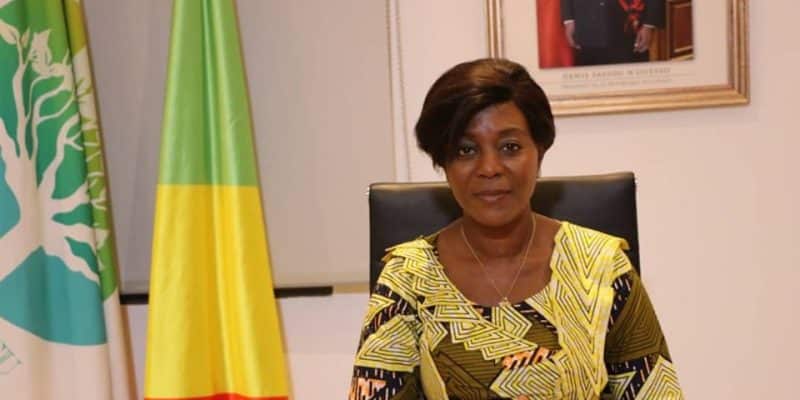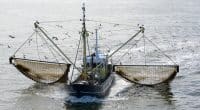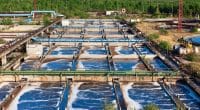African women are not on the sidelines of climate action. The actions and projects carried out by some of them have a worldwide echo, in the great concert of efforts to combat global warming. To mark the 2023 edition of African Women's Week, Afrik21 highlights the particular trajectories of three leading women in climate action in Africa.
 She is certainly the youngest African woman whose contribution to the fight against climate change promises to be one of the most significant. At just 28 years of age, Cameroonian Babette Christelle Tchonang joined the Jet Propulsion Laboratory of the National Aeronautics and Space Administration (NASA) in California, USA, on 7 February 2022. The oceanographer, who began his postgraduate studies at the University of Dschang in western Cameroon, spent ten months working on the validation and calibration of the SWOT (Surface Water Ocean Topography) satellite, which was launched on 16 December 2022.
She is certainly the youngest African woman whose contribution to the fight against climate change promises to be one of the most significant. At just 28 years of age, Cameroonian Babette Christelle Tchonang joined the Jet Propulsion Laboratory of the National Aeronautics and Space Administration (NASA) in California, USA, on 7 February 2022. The oceanographer, who began his postgraduate studies at the University of Dschang in western Cameroon, spent ten months working on the validation and calibration of the SWOT (Surface Water Ocean Topography) satellite, which was launched on 16 December 2022.
Orbiting at an altitude of 890 km, the SWOT satellite will provide information for nearly three years that will improve our understanding of the water cycle and its impact on the climate. This information will also be extremely useful in preventing floods and droughts. This is the space-technology aspect of the fight against global warming. It’s a field that fits in with the young astrophysicist’s professional vision. “My ambition is to contribute to the development of the use of the new capabilities of operational oceanography for the sustainable management of coastal zones (coastal development and preservation, maritime safety, pollution monitoring, fisheries management) in the countries of the Gulf of Guinea (Ivory Coast, Ghana, Togo, Benin, Nigeria, Cameroon, Equatorial Guinea and Gabon)”, says Babette Christelle Tchonang.
Babette doesn’t mention the Democratic Republic of Congo (DRC), yet this Central African country, which occupies almost a third of the surface area of the Congo Basin with more than 2.3 million square kilometres, cannot fail to benefit from the fruits of this scientist’s research. And to ensure that operational oceanography benefits the DRC’s only maritime outlet (a narrow strip of territory on the north bank of the Congo River, in the Moanda region of Bas-Congo, also known as Central Kongo), our second headliner will not be slow to take care of business. The Minister of Tourism, Environment and Sustainable Development, Arlette Soudan-Nonault, is at the heart of climate action in the DRC.
Arlette Soudan-Nonault, a voice for climate justice
A determination that has clearly not wavered. A determination to mobilise the international community towards real action in the fight against climate change in Africa. Arlette Soudan-Nonault raised her voice once again on 3 March 2023, Africa Environment Day. “If countries continue with their current policies, global warming will not be 1.5 degrees by 2100, but 2.8 degrees, a long way from the Paris Agreement, and with the imminent prospect of a total loss of control over our climate destiny”, warned the Congolese Minister for the Environment, Sustainable Development and the Congo Basin.
Against this backdrop of the urgent need to speed up the ecological transition, the Minister is outspoken every time she calls on the developed countries to honour their climate commitments to the countries of the South. In November 2022, at the United Nations Conference of the Parties on Climate Change (COP 27) in Egypt, she stormed out of the debates, arguing that the speeches of the heads of state were getting nowhere and that the virtues of the Congo Basin were not being properly recognised. “Africa, which only emits 4% of global emissions, has not been taken into account. We are here to talk about adaptation, we are here to talk about mitigation, we are good at mitigation, but as responsible people, we have to continue to reconcile mitigation and development, so we have to move towards an energy transition with clean energies, so we need financing”, defended the minister, who is also Commander of the Congolese Order of Merit.
Technical Coordinator of the Congo Basin Climate Commission since August 2017, Arlette Soudan-Nonault is currently at the heart of preparations for a major summit to be held in Brazzaville in October 2023. The summit will bring together the world’s three largest forest basins.
The battles waged by Arlette Soudan-Nonault and her younger sister Babette Christelle Tchonang are reminiscent of a legend in Africa’s environmental and climate campaign, Wangari Muta Maathai from Kenya.
Wangari Muta Maathai the “tree mother
Wangari Muta Maathai is a role model for the ecological struggle in Africa. She died on 25 September 2011 in Nairobi at the age of 71. The memory of this biologist, professor of anatomy in veterinary medicine and political and environmental activist is celebrated every year on 3 March by the African Union (AU).
Kenya’s first biologist and the first African woman to win the Nobel Peace Prize (in 2004), was an African figure in the ecological cause. She was still known as the “Tree Mother” because of her campaign to plant trees across Kenya.
Maathai introduced the idea of tree planting at community level, which she developed into a broad-based grassroots organisation. It was this organisation that she called the Green Belt Movement (GBM), officially founded in 1977, under the auspices of the National Council of Women in Kenya (NCWK), in response to the energy and water needs of the country’s rural women.
Over the years, the Green Belt Movement has planted more than 51 million trees in Kenya. Working at grassroots, national and international levels, the movement focuses on building climate resilience and empowering communities, particularly women, to foster democratic space and sustainable livelihoods.
Boris Ngounou










You must be logged in to post a comment.